I don't think people realise what these kids go through.
- Stacey, Asher's Mum
Asher was just a toddler when his long and gruelling cancer journey began. Through it all, his courage, determination and compassion shone through, inspiring all those who loved him.
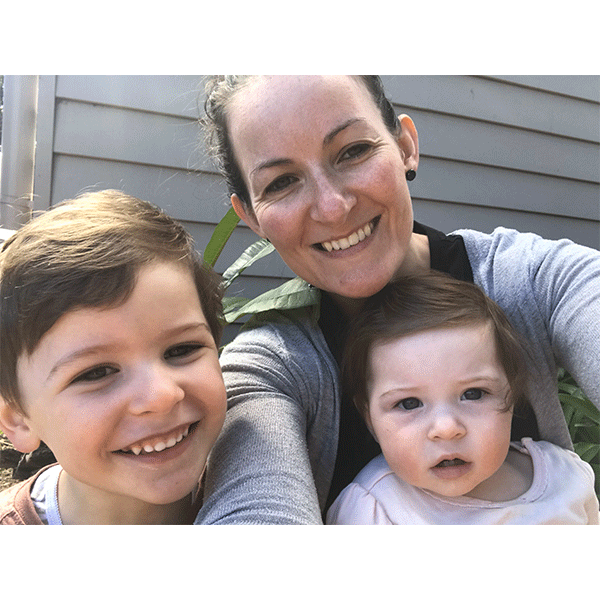
Pre-diagnosis
In 2021, life was busy for Stacey and Andy, who were juggling work and two kids. First-born son, Asher, was two and a half years old, and baby sister, Harper, had not yet turned one.
‘We had a really beautiful home in Toowoomba and just enjoyed being homebodies most of the time,’ says Stacey. ‘Life was good.’
‘Asher was into boy things like playing with trucks. He loved being a brother. He was also very very determined, which I think very much helped him later on his journey.’
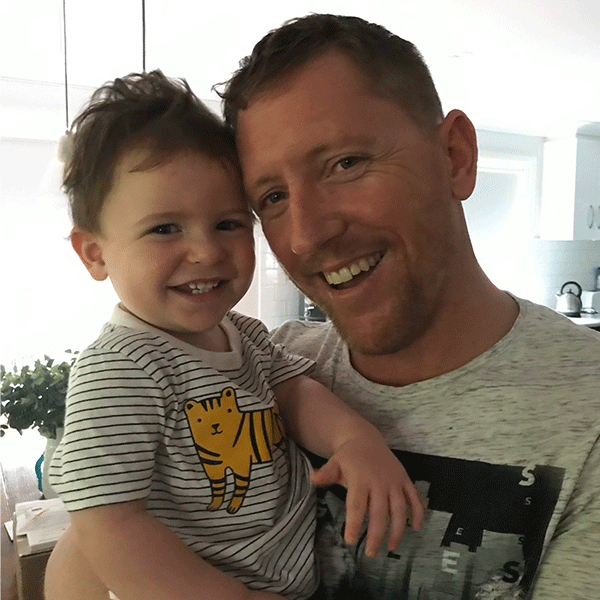
Symptoms
Subtle signs began to appear that something wasn’t right. Asher began to eat a bit less than usual and developed constipation. Fatigue would come and go. Suddenly, he could no longer easily climb up on the couch or the bed, something Stacey describes as “a red flag.”
Then one night when Asher was lying in bed, he started screaming, saying his back hurt. Stacey took him to hospital, but the doctors couldn’t find anything and sent him home.
On a subsequent trip to the GP, with Asher now looking very pale, the doctor suggested that blood tests be done.
That was the start of it.
- Stacey, Asher's Mum
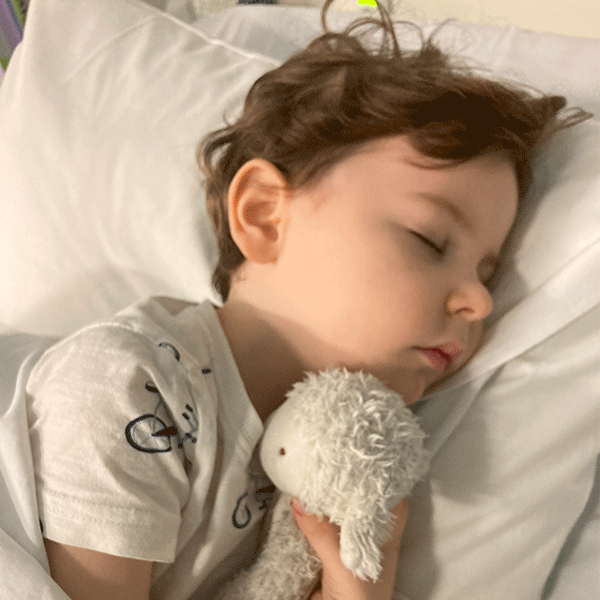
‘She rang me as soon as she got the results back and said you need to go to the paediatrician straight away,' recalls Stacey.
Two days later, when the paediatrician examined Asher, Stacey was told to take him to the hospital to get a chest x-ray.
‘That was the start of it,’ she says. ‘The doctor came into the room, and I could just see that it was bad news she was going to deliver. She took a big deep breath and said, we found a tumour.’
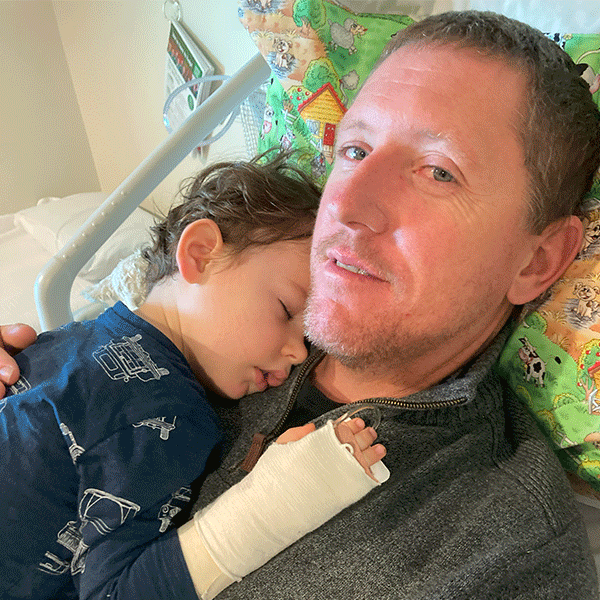
Diagnosis
The following day, Stacey and Asher were in an ambulance on their way to Queensland Children’s Hospital in Brisbane. Harper, just 10 months old, was sent to stay with Stacey’s mum and dad.
‘Straight away, your family is divided,’ shares Stacey.
On arriving at the hospital, they were told the oncology team would meet with them.
‘I just looked at Andy and said, “it's oncology”. Then all of a sudden, we're up on 11B which is the oncology ward, and that’s our home for the next seven weeks.’
‘It’s another world that exists. You don’t know it exists until you’re there.’
Stacey and Andy were told Asher had Stage 4 neuroblastoma, and they were going to be in Brisbane for at least 18 months.
‘To remain positive, I had to have hope. We are a family of faith, so I thought, we’re going to pray our hearts out, and we’re just going to get through this day by day.’
It’s another world. You don’t know it exists until you’re there.
- Stacey, Asher's Mum
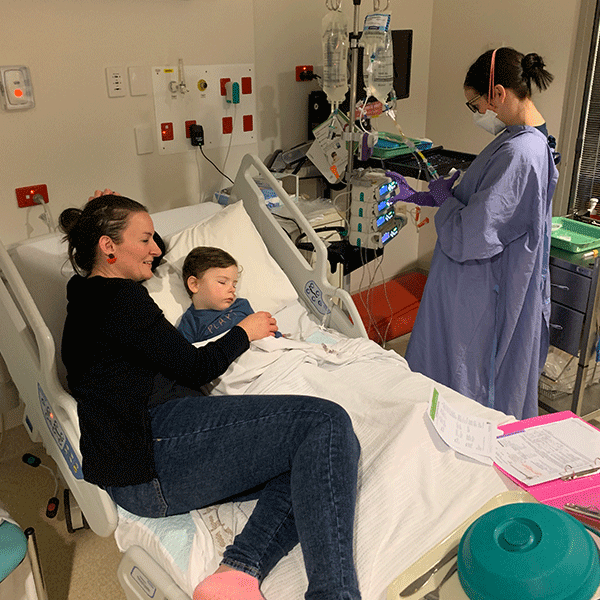
Treatment Begins
Two days after arriving at Queensland Children’s Hospital, Asher began induction chemotherapy.
A local charity provided a place for Asher and Stacey to stay in Brisbane. Harper continued living with her grandparents, while Andy stayed working in Toowoomba.
‘We were all separated, which was very, very hard. Andy would come down for the weekends, but Asher just couldn’t understand why he couldn't stay.’
Induction therapy was just horrendous.
- Stacey, Asher's Mum
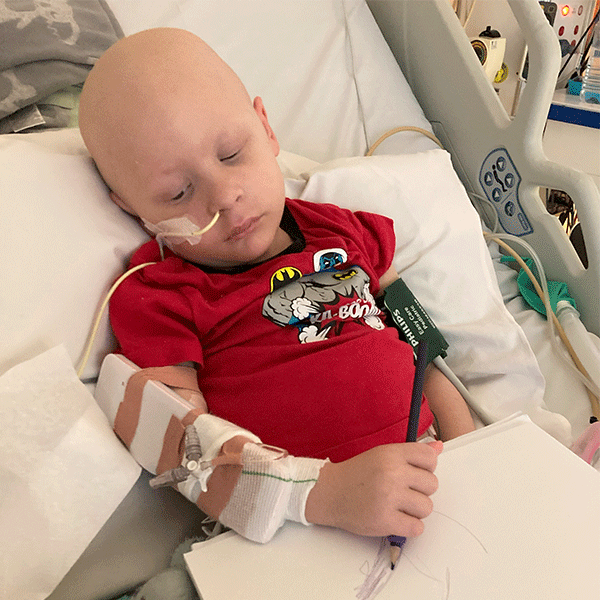
Side effects were another significant challenge, with Asher suffering terrible mucositis and vomiting. Stacey describes induction therapy as ‘just horrendous’, though she says Asher responded well initially.
Once five cycles of chemotherapy were completed, Asher had surgery to remove his tumour, a 10 cm mass growing along the nerves of his spine.
‘You can imagine how painful that would have been,' says Stacey.
More Treatment
Following surgery, Asher went in for a bone marrow transplant. Unfortunately, during this time he suffered more serious side effects.
‘We ended up in intensive care with these terrible burns,’ says Stacey. ‘Then a week after getting out, we're back in hospital with pulmonary veno-occlusive disease, which is a rare side effect of transplantation. Normally they get it in the liver, but Asher got it in the heart.’
‘We had about six consultants walk us into a room and tell us they didn’t think Asher would survive the weekend. It was terrible. And I just remember Andy standing up and saying: No, I don’t believe this is Asher’s time.’
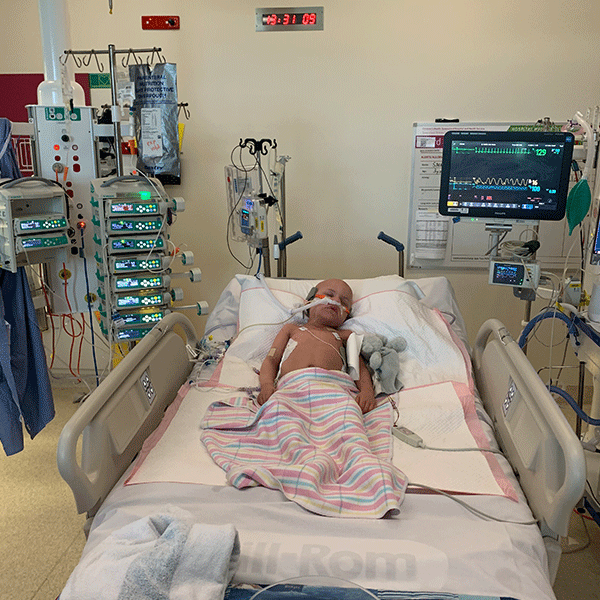
They didn’t think Asher would survive the weekend.
- Stacey, Asher's Mum
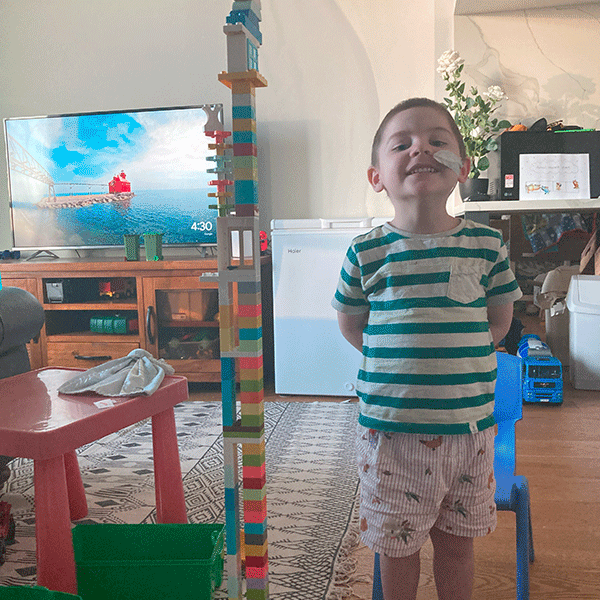
Miraculously, Asher survived.
Several months of recovery followed, during which time Stacey says they needed to be no more than 30 minutes away from the hospital, so were ‘stuck in Brisbane’.
‘By that time, we’d had to sell our family home in Toowoomba because we couldn’t afford to keep it,’ shares Stacey. ‘It was very sad because we worked really hard to build it. It was really beautiful.’
Andy went on leave without pay from his job, and he and Harper moved down to Brisbane to be with Stacey and Asher. Finally, the family was together again.
Pallative Care
Once Asher was well enough for more treatment, he began 12 rounds of radiation therapy. This was followed by five rounds of immunotherapy, then a final round of chemotherapy.
‘He was complaining of more and more pain,’ says Stacey. ‘You’d look at the scan and stuff was lit all over his little body.’
‘He’d spent most of his time in hospital over the course of nearly two years. The hospital tried everything. But it just wasn’t working.
With Asher’s cancer not responding to treatment, cure was no longer considered achievable, and the focus shifted to maximising quality of life.
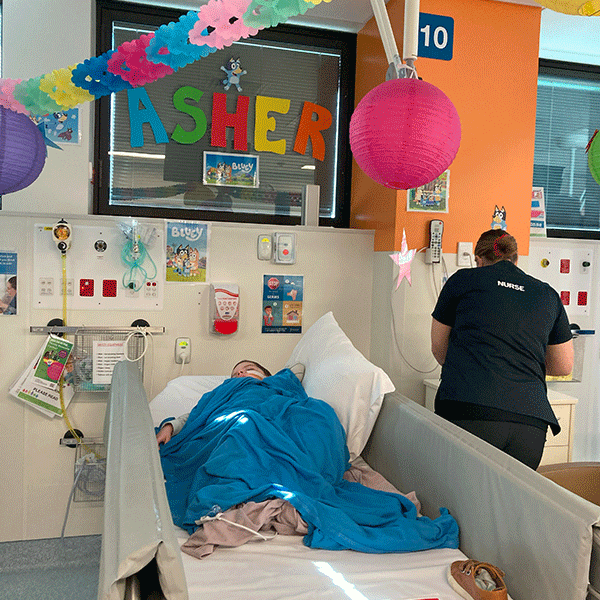
His suffering was so immense.
- Stacey, Asher's Mum
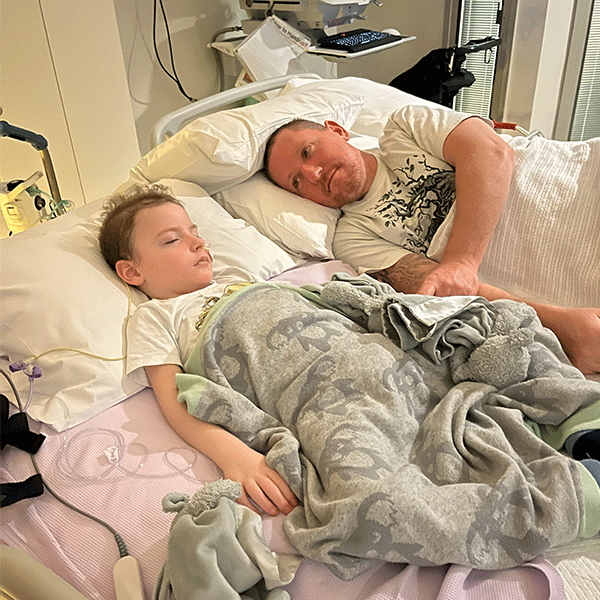
Just as it looked like Asher might get to go home, his condition deteriorated and the palliative care team was called in.
‘When palliative care came in and said we think he’s only got 24 hours left to live, I felt a change,’ shares Stacey. ‘I felt at peace then, knowing that it wasn’t God’s will for Asher to live.’
‘His suffering was so immense. I was praying, please Lord, take him home.’
Three and half weeks later, Asher passed away.
Reflections
Stacey says that looking back, Asher taught her and Andy many things.
‘He only lived for four and a half years, but he taught us a lot of stuff, especially in those last few weeks. About true courage and true determination. It really shone through him, which is very inspiring.’
‘And even in the depths of his suffering, he had this compassion. We’d hear the CareFlight helicopter bringing in a sick child, and he’d say: Mum, we’ve got to pray for that kid.’
Reflecting on the grief of losing a child, Stacey acknowledges there is no end to it.
‘I guess I thought maybe it might get a bit better, but honestly, the hurt is still just as much there as the day he passed away. It comes out of nowhere sometimes, and it hits you hard.’
Today, Stacey is an advocate for children’s cancer research.
‘I don't think people realise what these kids go through, how horrific it is. It's hard for people to hear how horrendous it was, but that's childhood cancer. We need research.’
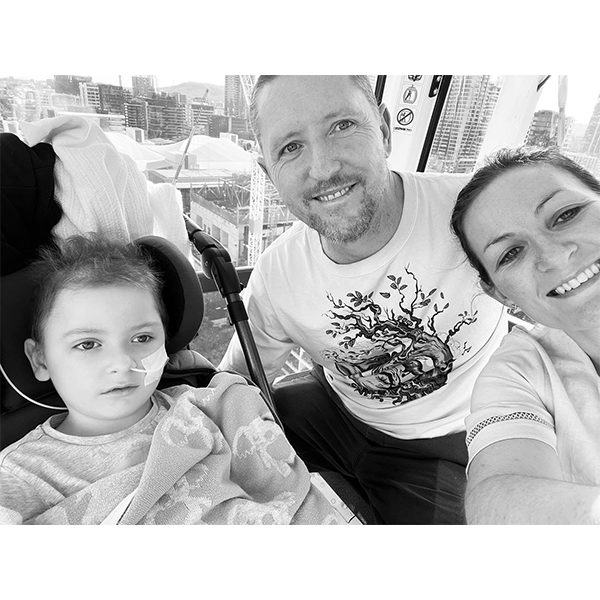
How you can help

Give a gift
By giving a gift today, you can make a difference to the lives of children with cancer.

Fundraising and events
Get involved in one of our events or create your own to help find better, safer treatments for children with cancer.

Partnerships
Join our diverse community of businesses, philanthropists and gamechangers, determined to help cure childhood cancer.
Share your story
Have you been touched by childhood cancer and would like to share your story? Please get in touch today.









